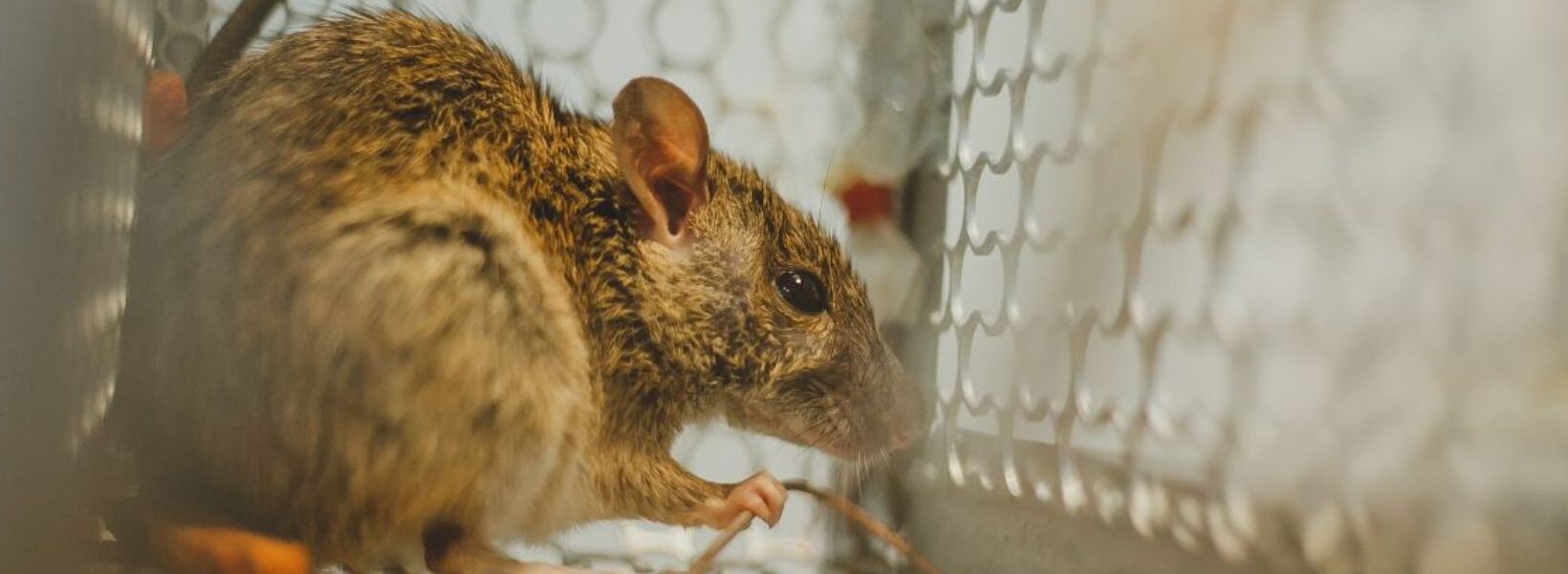Dealing with mouse control in small spaces can be frustrating, especially when these unwelcome guests find their way into areas you consider secure. The most effective approach includes thorough cleaning, sealing entry points, and utilizing appropriate traps or repellents. Implementing these strategies can significantly reduce the likelihood of a mouse infestation.
You may think limited space restricts your options, but that’s false. Strategic placement of deterrents and traps in tight areas can be highly effective. Understanding how mice navigate and thrive can enhance your ability to create a less inviting environment for them.
Taking proactive measures in small areas helps keep your home pest-free and provides peace of mind. With the right techniques, you can reclaim your space from these pests and ensure it remains comfortable and clean.
Understanding Mouse Behavior in Small Spaces
Mice exhibit specific behaviors in constrained environments that can complicate control measures. Recognizing their habitat preferences and the importance of proactive strategies can aid in effective rodent prevention, particularly in compact living spaces like apartments.
Habitat Preferences and Challenges
Mice thrive in environments that offer shelter and easy access to food. Small spaces, such as apartments, often have numerous hiding spots, making it easy for them to establish nests.
Key habitat features:
- Cluttered areas: Mice prefer hidden corners, behind appliances, and within stacks of boxes.
- Food sources: Easy access to crumbs, pet food, and open containers increases attraction.
- Entry points: Gaps in walls, around plumbing, and through poorly sealed windows facilitate their entry.
With limited space, their movement may become more concentrated, heightening the likelihood of encounters. Therefore, regular inspections are vital to identify signs of infestation.
Significance of Proactive Control
Implementing proactive control strategies is essential for effective mouse management in small spaces.
Effective measures include:
- Preventive sealing: Close gaps and holes in walls and foundations to deter entry.
- Regular cleaning: Keep food stored in airtight containers and clean up crumbs immediately.
- Strategic baiting: Use traps strategically placed in high-traffic areas to monitor and catch mice.
Addressing problems early can reduce the impact of infestations. Awareness and swift action are key to maintaining a mouse-free environment in Dallas apartments. Consistent monitoring can help you stay ahead of rodent issues.
Strategic Mouse Control Methods
Effective mouse control in small spaces, particularly condos, requires a blend of physical, chemical, and technological strategies. Understanding these methods allows you to implement the best solution to protect your environment.
Physical Traps and Barriers
Physical traps are among the most straightforward solutions. You can use snap, glue, or catch-and-release traps to capture mice effectively. Snap traps are quick and can be placed along walls where mice are likely to travel.
Ensure traps are baited with appealing options like peanut butter or dried fruit. Barriers must seal entry points. Use materials like steel wool or copper mesh to block holes. Pay particular attention to areas around plumbing and electrical conduits.
Establishing these physical defenses can significantly reduce mouse activity in confined spaces.
Chemical and Natural Repellents
Chemical repellents can deter mice from entering your condo. Products that contain naphthalene or sulfur compounds are effective; however, ensure that they are safe for indoor use. Apply these repellents around potential entry points and areas where activity has been noted.
On the other hand, natural repellents can also work well. Essential oils such as peppermint and eucalyptus are known to repel mice effectively. Soak cotton balls in these oils and place them in areas like the pantry or kitchen.
Regular reapplication is necessary to maintain effectiveness.
Technological Deterrence Solutions
Technological solutions offer innovative ways to manage mouse control. Ultrasonic devices emit sound waves that are uncomfortable for rodents but inaudible to humans. Position these devices in rooms prone to infestations, as continuous sound can deter mice from venturing inside.
Smart traps connect to your mobile device, allowing you to monitor trap activity remotely. This feature can help you track mouse activity without manually checking traps. Always ensure that tech solutions are suitable for small spaces like condos to maximize their effectiveness in confined environments.
Preventive Measures and Home Maintenance
Maintaining a mouse-free environment in small spaces requires regular attention and proactive strategies. Implementing specific preventive measures can significantly reduce the likelihood of infestations.
Routine Inspections and Cleaning
Regular inspections are crucial for identifying potential entry points and nesting areas. Look for signs of mouse activity, such as droppings, gnaw marks, or nests in hidden spaces.
Cleaning Tips:
- Frequent Vacuuming: Focus on corners, under appliances, and behind furniture.
- Immediate Cleanup: Promptly address spills and food waste to eliminate attractants.
- Seasonal Deep Cleaning: Schedule comprehensive cleaning at least twice a year, ensuring no hiding spots are left unchecked.
In Dallas, small homes often present unique challenges for rodent control. Being vigilant about cleanliness can help you stay ahead of potential rodent issues.
Sealing Access Points
Mice can enter through very small openings. Inspect your home for gaps in walls, around pipes, and along the foundation.
Sealing Techniques:
- Use Steel Wool or Caulk: Fill gaps with steel wool, as mice cannot chew through it.
- Install Door Sweeps: Place sweeps at the bottom of doors to block entry.
- Check Vents and Grilles: Ensure that vents have tight-fitting covers.
Addressing these issues can significantly lower the risk of mice infiltrating your home. Consider these strategies essential for keeping rodents out of small spaces.
Clutter Management
Clutter provides ample hiding places and nesting materials for rodents. Keep your living space organized to minimize these risks.
Clutter Control Methods:
- Storage Solutions: Utilize airtight containers for food and storage items.
- Regular Decluttering: Schedule regular clean-outs to reduce unnecessary items.
- Strategic Furniture Placement: Arrange furniture to allow for easy cleaning and monitoring.

Effective clutter management is vital for apartment dwellers to ensure no nooks or crannies become inviting for mice.
If you’ve taken these steps and still face challenges, consider calling Critter Stop at (214) 234-2616 for a free inspection. Critter Stop has a fantastic reputation and online customer reviews because it provides high-quality work and great customer service.



